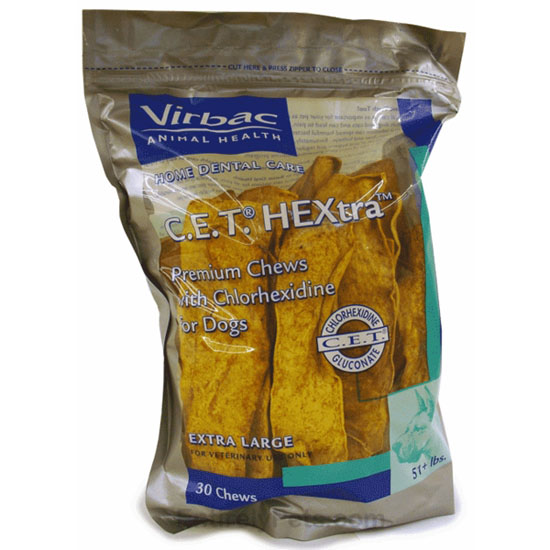First, let's explore some definitions.
Plaque: a sticky material made of bacteria, mucus, and food debris that develops on the exposed parts of the teeth
Tartar/Calculus: the hard deposit that forms at the base of the tooth if you do not remove plaque

Gingivitis: inflammation of the gums- this can be around one tooth or all of them

Periodontitis: inflammation and infection of the ligaments and bones that support the teeth
 (this tooth may be slightly loose)
(this tooth may be slightly loose)Periodontal disease:inflammation and infection that destroys the tissues that support the teeth, including the gums, the ligaments, and the tooth sockets
 (these teeth most likely wiggle when touched)
(these teeth most likely wiggle when touched)According the the American Animal Hospital Association, in a small breed dog without home dental care, periodontal disease can begin as early as 9 months!
Dental disease is staged 1-4 depending on severity. How would you stage your dog or cat's dental status?

Great dental health starts at home with products you can get from your veterinarian.
C.E.T. HEXtra chews, Veggiedent tartar control chews, Enzymatic oral hygiene chews, Aquadent drinking water additive and oral rinse, Greenies dental chews. The C.E.T. product also include flavored pet toothpaste and brushes. DO NOT USE REGULAR HUMAN TOOTHPASTE! It is not meant to be swallowed and can make your pet sick!







How to brush your cat's teeth: http://www.youtube.com/watch?v=2ok_9RaRCmg
http://www.youtube.com/watch?v=S1UNBVGtv8I
How to brush your dog's teeth: http://www.youtube.com/watch?v=PsNlLLSBWLU
If your pet has bad breath and/or you see visible tartar build-up you need to see your veterinarian immediately. You pet may need professional dental treatment.